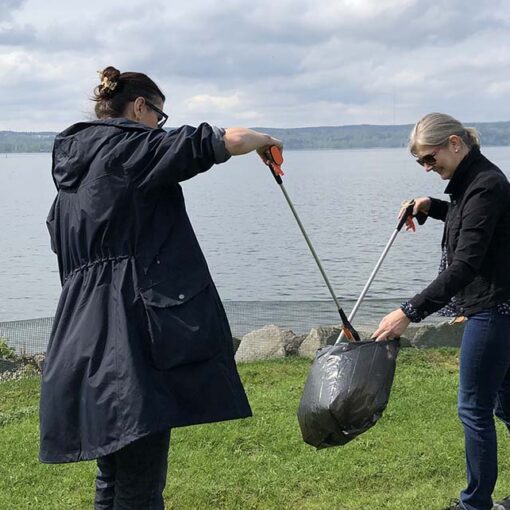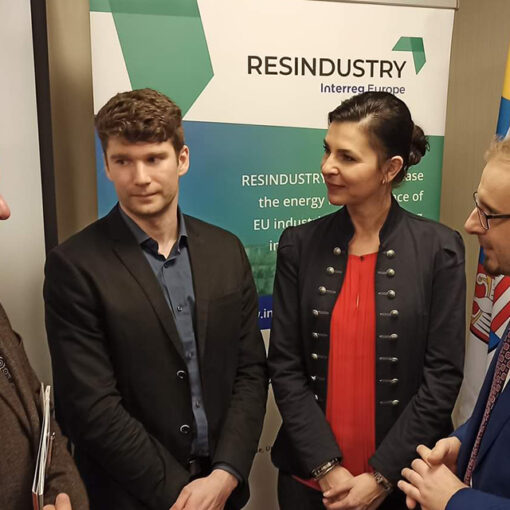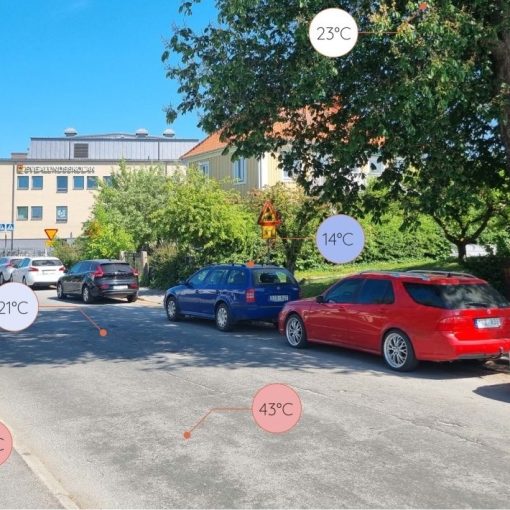Plastics are a part of our everyday life and have become practically indispensable. Everyone uses it. Be it when we brush our teeth in the morning, take our takeaway coffee mug to work or even when we just wear normal clothes. Even though we might not always see it, plastics are everywhere and hard to avoid. Also, they have had a huge impact on our society and have made a lot of processes so much easier (for example in the medical field). That’s why dealing with the waste created by those plastic products is so important.
Overall, there have been around 350 million metric tons of plastic waste worldwide in 2021. Only 15% of this waste has been collected for recycling treatments (Statista 2023). That is a frighteningly big amount of plastic waste being thrown into landfills or even the oceans. And it feels like everyone is looking away.
![[Alt text: an ugly sight with dozens of waste bags in the street.]](https://blogit.lab.fi/labfocus/wp-content/uploads/sites/8/2023/12/896_2023_Sustainability-and-plastics.-Can-they-coexist-1024x634.jpg)
Plastic waste doesn’t care about borders
Everyone should be conscious of their impact on sustainability and should be aware of how they dispose of plastic waste materials. Waste separation should be an extremely crucial practice in our everyday life. Because even though the end consumers might not be the biggest plastic polluters, every action counts.
Still, not every country in this world is as sustainably conscious and mindful as Finland is. But wouldn’t it be important and better to spread awareness in other parts of the world also? To make a difference by improving the situation in developing countries which are often dependent on plastic use rather than just improving one country’s sustainability? In the end, climate change doesn’t care about borderlines.
As an example, you could also take Germany. There you will find a working deposit system for plastic bottles and an intense plastic separation system that has been anchored in the country’s values for decades. And while not everything might be working perfectly, you see everyone take part in the recycling process.
However, if you just go a bit farther to the west across the border you will find that in the neighbouring country France, the issue of recycling is not yet seen as that important. Knowing the situation in Finland, waste separation into just biodegradable, recyclable, and residual waste (Gouvernement francais 2023) appears trivial and awareness should be raised.
But how is that possible? What is the accomplishment of being more ecological and recycling for one country when the rest of the world doesn’t play along with it? Can we even be truly sustainable and practice a good circular economy in our world while using plastics?
Who knows if we will ever have an answer to those questions?
Let us share good practices
But what we can do, we can share good practice examples for smarter use, increased circularity, and renewable materials of plastics that have been found across Europe. Thus, we can inspire businesses, policymakers, and citizens to participate and collaborate in making plastics more circular and sustainable. (European Environment Agency 2023.)
Authors
Johanna Metzen is a Bachelor Exchange Student of Business Administration at LAB University of Applied Sciences.
Sari Jokimies works as senior lecturer at LAB University of Applied Sciences.
References
Etienne Girardet. 2020. Green and white plastic bags. Unsplash. Cited 30 Nov 2023. Available at https://unsplash.com/de/fotos/grune-und-weisse-plastiktuten-vNlx-zpUPAw
European Environment Agency. 2023. Pathways towards circular plastics in Europe — good practice examples from countries, business and citizens. Cited 30 Nov 2023. Available at https://www.eea.europa.eu/publications/pathways-towards-circular-plastics-in/pathways-towards-circular-plastics-in
Gouvernement francais. 2023. Tri des déchets. Cited 29 Nov 2023. Available at https://www.ecologie.gouv.fr/tri-des-dechets
Statista. 2023. Plastic waste worldwide – statistics & facts. Cited 29 Nov 2023. Available at https://www.statista.com/topics/5401/global-plastic-waste/#topicOverview




